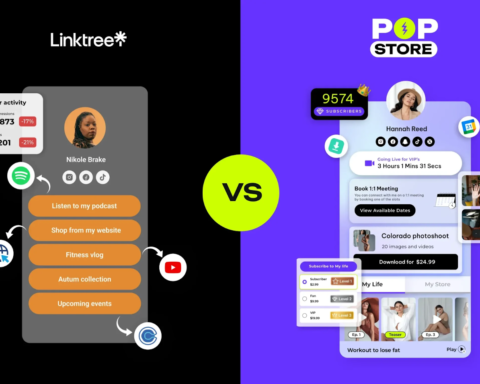Effective communication hinges on clear articulation, and mastering challenging sounds like “R” can significantly enhance one’s ability to convey meaning accurately. In this comprehensive guide, we’ll explore a myriad of strategies and tools tailored to improving articulation, with a particular focus on addressing the elusive “R” sound.
From foundational techniques like auditory discrimination training to innovative resources such as articulation cards, we’ll delve into every facet of articulation therapy to equip individuals with the skills they need for clear and confident speech.
Understanding Articulation Challenges with “R”:
The “R” sound is notorious for its complexity, often posing a stumbling block for individuals of all ages. Common errors, including substitutions, distortions, and omissions, can impede effective communication. These challenges may stem from a variety of factors, including developmental delays, motor skill difficulties, or linguistic differences. Recognizing the nuances of “R” sound production lays the groundwork for targeted intervention strategies.
Strategies for Improving Articulation
Auditory Discrimination Training
Enhancing auditory discrimination skills involves distinguishing between correct and incorrect “R” sounds. Through structured exercises and minimal pair activities, individuals learn to identify subtle differences in pronunciation, paving the way for improved articulation accuracy.
Visual Cues and Modeling
Visual aids provide invaluable support in articulation therapy. Mirrors allow individuals to observe their tongue placement and mouth movements in real-time, facilitating self-correction. Videos demonstrating proper “R” articulation serve as powerful models for imitation and refinement of speech patterns.
Tongue Placement Exercises
Targeted exercises focusing on tongue placement are essential for mastering the “R” sound. Tongue twisters, oral-motor activities, and tactile cues help individuals develop the muscle strength and coordination necessary for accurate articulation.
Progressive Word and Sentence Drills
Gradually increasing the complexity of speech tasks—from single words to phrases and sentences—provides ample opportunities for practice and generalization. Structured drills reinforce correct “R” sound production across diverse linguistic contexts, fostering fluency and confidence.
Contextualized Practice
Integrating “R” sound practice into meaningful contexts, such as storytelling or role-playing scenarios, enhances retention and application of skills. By embedding articulation practice within natural communication settings, individuals develop a more robust and functional command of the target sound.
Feedback and Reinforcement
Providing timely and constructive feedback is essential for promoting skill acquisition and self-awareness. Positive reinforcement, such as praise or rewards, motivates individuals to persist in their efforts and celebrate progress along the way.
Technology-Assisted Learning
Leveraging digital resources, such as speech therapy apps or online platforms, can supplement traditional therapy approaches. Interactive exercises and virtual simulations offer engaging opportunities for practice and skill development, particularly for tech-savvy individuals.
Collaboration with Caregivers
Involving caregivers in the therapeutic process fosters continuity of practice and support beyond therapy sessions. Educating parents and family members about effective communication strategies and home practice techniques empowers them to reinforce learning in everyday contexts.
Group Therapy Dynamics
Participating in group therapy sessions provides individuals with opportunities for peer modeling, social interaction, and collaborative learning. Group dynamics can foster a supportive environment where individuals feel motivated to practice and learn from each other.
Utilizing Articulation Cards
R Articulation cards serve as versatile tools for targeted practice and reinforcement of specific speech sounds. These customizable cards feature words or phrases containing the target sound, accompanied by engaging visuals. Incorporating articulation cards into therapy sessions adds a dynamic element to articulation practice and fosters active participation.
Creating Customized Articulation Cards
Designing personalized articulation cards allows therapists to tailor interventions to meet individual needs effectively. Thoughtful selection of target words, captivating designs, and relevant imagery enhance engagement and promote learning. Utilizing durable materials ensures longevity and usability of the cards across multiple sessions.
Implementing Articulation Cards in Therapy Sessions
Assessment Phase
Thorough assessment of articulation skills, including specific challenges related to the “R” sound, informs targeted intervention planning. Baseline data collection provides a benchmark for progress monitoring and goal setting.
Therapy Planning
Setting clear and measurable goals guides therapy planning and ensures a focused approach to intervention. Selecting articulation cards aligned with therapy objectives facilitates structured and goal-oriented practice sessions.
Therapy Execution
Incorporating articulation cards into therapy sessions fosters active engagement and promotes skill acquisition. Utilizing a variety of activities, games, and multisensory techniques enhances motivation and reinforces correct articulation patterns.
Monitoring Progress and Adjusting Strategies
Regular progress monitoring using data-driven assessment tools enables therapists to track improvement and make informed decisions regarding therapy adjustments. Ongoing evaluation of intervention effectiveness ensures that therapy remains responsive to the individual’s evolving needs.
Conclusion
Effective articulation is a cornerstone of clear and confident communication, and mastering challenging sounds like “R” can significantly enhance speech intelligibility. By employing a diverse range of strategies and harnessing the power of articulation cards, individuals can overcome articulation challenges and unlock their full communicative potential.
With dedication, tailored intervention, and ongoing support, individuals can embark on a transformative journey towards improved articulation and enhanced communication skills.








